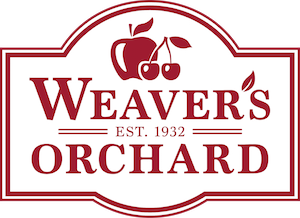After Glen Shorley retired from the financial industry through The Vanguard Group, Inc., he embraced his love of coffee and wanting to give back abroad.
Glen officially opened Cave Bird Coffee and Cave Bird Cup of Life in 2010, but behind-the-scenes preparation to launch this business and its partnering nonprofit started a few years earlier. And his affinity for archaeology and anthropology, specifically cave drawings, stirred the cave bird namesake.
Today, Chester County-based Cave Bird Coffee sources its beans from Uganda, Honduras and Costa Rica, and it’s Glen’s ties to Uganda that have generated the strongest stories and impact. The profits from selling this coffee in the U.S. are sent to Africa to cover the costs of installing manual wells in villages where there is need, so that more Africans have access to clean water.
Some of the coffee varieties Glen roasts and sells to Weaver’s Orchard are Mount Elgon, African Blend, Brian’s Bold and Brandywine Morning.
Glen Shorley travels to Uganda once each year to work with those who operate three coffee bean farms in Mount Elgon, Sipi Falls and Lake Albert.
Several tons of coffee, transported to the U.S. in 130 to 145-pound burlap bags, arrive from Uganda at docks in New Jersey by July, and Glen roasts the green beans to their eventual brown color.
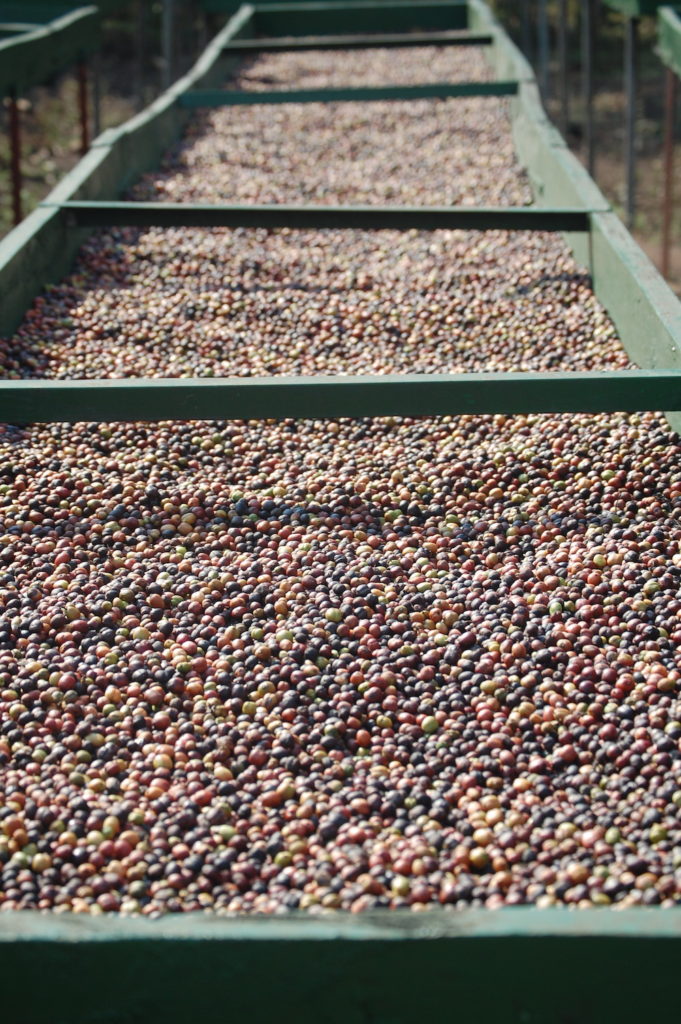
Livable Wages for Coffee Harvests
What’s unique about Cave Bird Coffee’s connection with these Ugandan farmers is that Glen works directly with them, not through brokers.
“We pay better than Fair Trade rates in Uganda,” Glen says. “We’re buying the coffee at top dollar, and with no middleman, nobody takes a cut of what they earn.”
Having worked with money during his entire career, Glen is grateful to be able to afford to do this volunteering and to pay livable wage rates per pound of coffee to these farmers since a lot of harvested coffee globally doesn’t necessarily equate to fair earnings for those who produce the crop.
“They’re very thrilled,” Glen says about these farmers knowing Cave Bird Coffee pays them a deserved income. “They count on us to buy their coffee, and they know they don’t have to go to market or fool around with pricing or have someone who coordinates it for them like a middleman since it’s direct.”
Clean Drinking Water in Uganda
He admits that he doesn’t make as much per sale with his coffee as some other local distributors probably do, but his goal isn’t profit for the business—it is to support these hardworking farmers and to help them grow their agricultural efforts.
One of the wells built in Uganda through the proceeds of Cave Bird Coffee supports about 5,000 people– from not one but two villages.
The well construction is done by a nonprofit with which Glen Shorley meets periodically, and, on his trips back to Uganda, he often visits to see clean, unadulterated water in use.
Without these wells, villagers often use nearby watering holes where parasites are usually present. Drilling 30 feet down to have access to clean water makes a world of difference for their health.
Usually about 4 of 5 wells are built a year in Uganda through these community-supporting endeavors linked to purchasing coffee beans shelled from the coffee cherries of the parent plants.
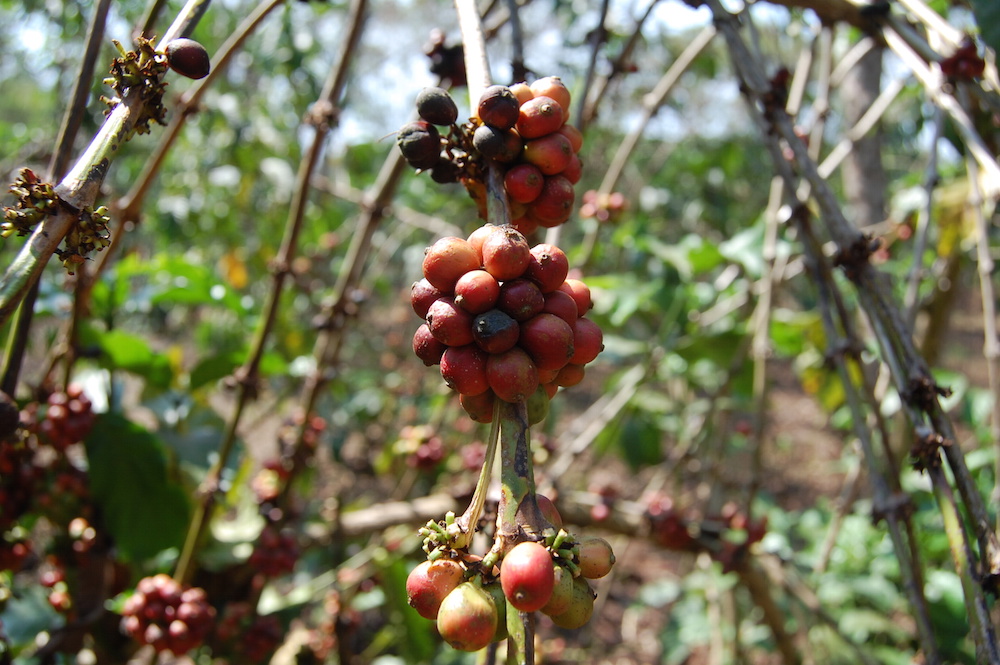
“Everyone has to agree that they want the well and that they will own it, but it won’t cost them anything,” Glen says about the Ugandan villagers who benefit from this work.
Without ownership, if a well breaks, villagers often abandon it and go back to using a water hole. But with ownership, they’re more likely to feel responsibility to report the issue so it can be fixed. And Glen says the ownership aspect has been helping to ensure that if wells do break, those who can repair them are notified and will visit do the maintenance to keep clean water accessible.
Glen is out in the fields working with farmers by day when he visits Uganda, and he lives in a tent nearby while there.
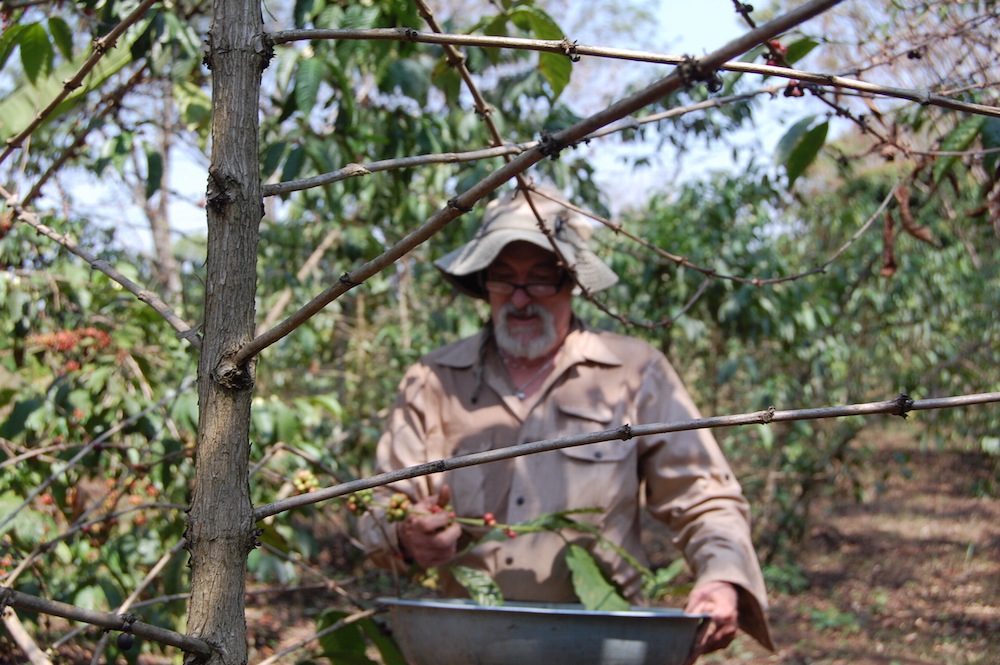
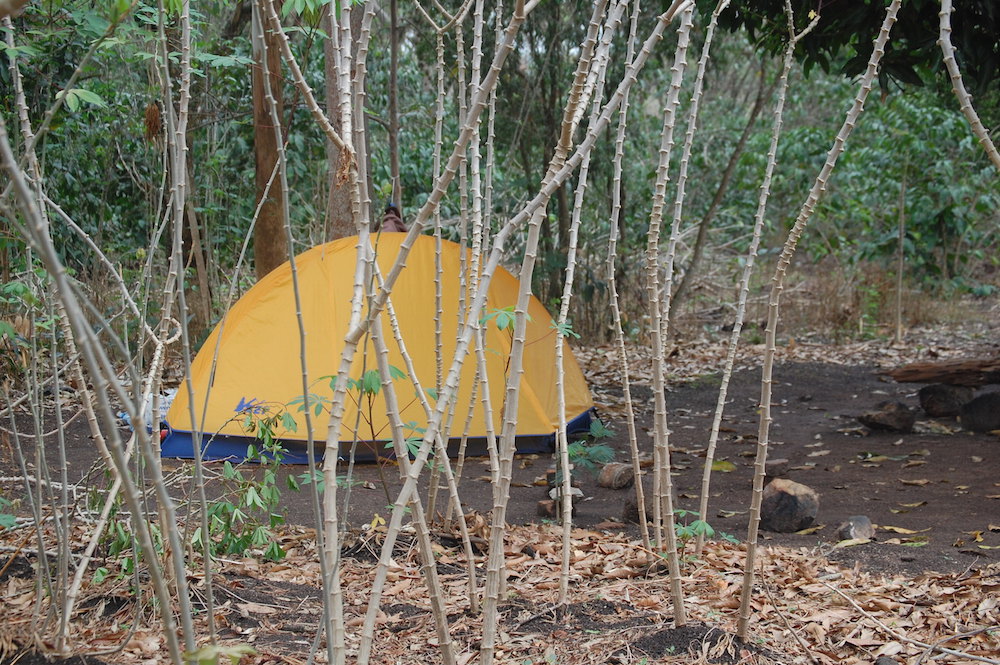
Although more than 50 dialects are spoken in Uganda, body language and a single translator at each farm help Glen communicate.
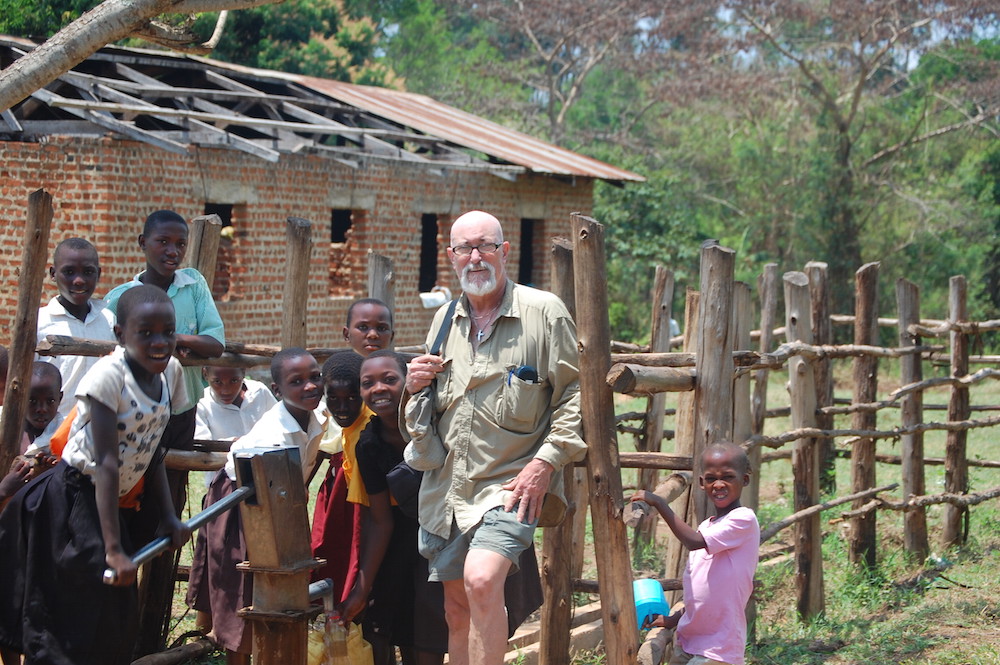
“These people are not bombarded with a lot of advertisements, so they’re not working to buy a car, new clothes or a special piece of furniture,” Glen says reflectively. “They’re working for survival and to get up in the morning, in tune with the weather. Everybody grows sweet potatoes and beans, no matter who you are—even the priest of the Anglican church. The people just work, and they’re not expectant for a lot, but they’re very thankful for what they have. There’s a sense of thankfulness which I think Americans don’t really have. Our spirits were created to be a certain way, and we should be in community with each other.”
Glen has noticed that Ed Weaver, Orchard President, and Dwayne Musser, Farm Market Manager, stop by to thank him for the wells he is helping to build in Uganda. “You don’t get that in most places,” says Glen. Weaver’s is proud to sell Cave Bird Coffee, and Glen is thrilled to have Weaver’s customers join in supporting the wells and sustainable production.
